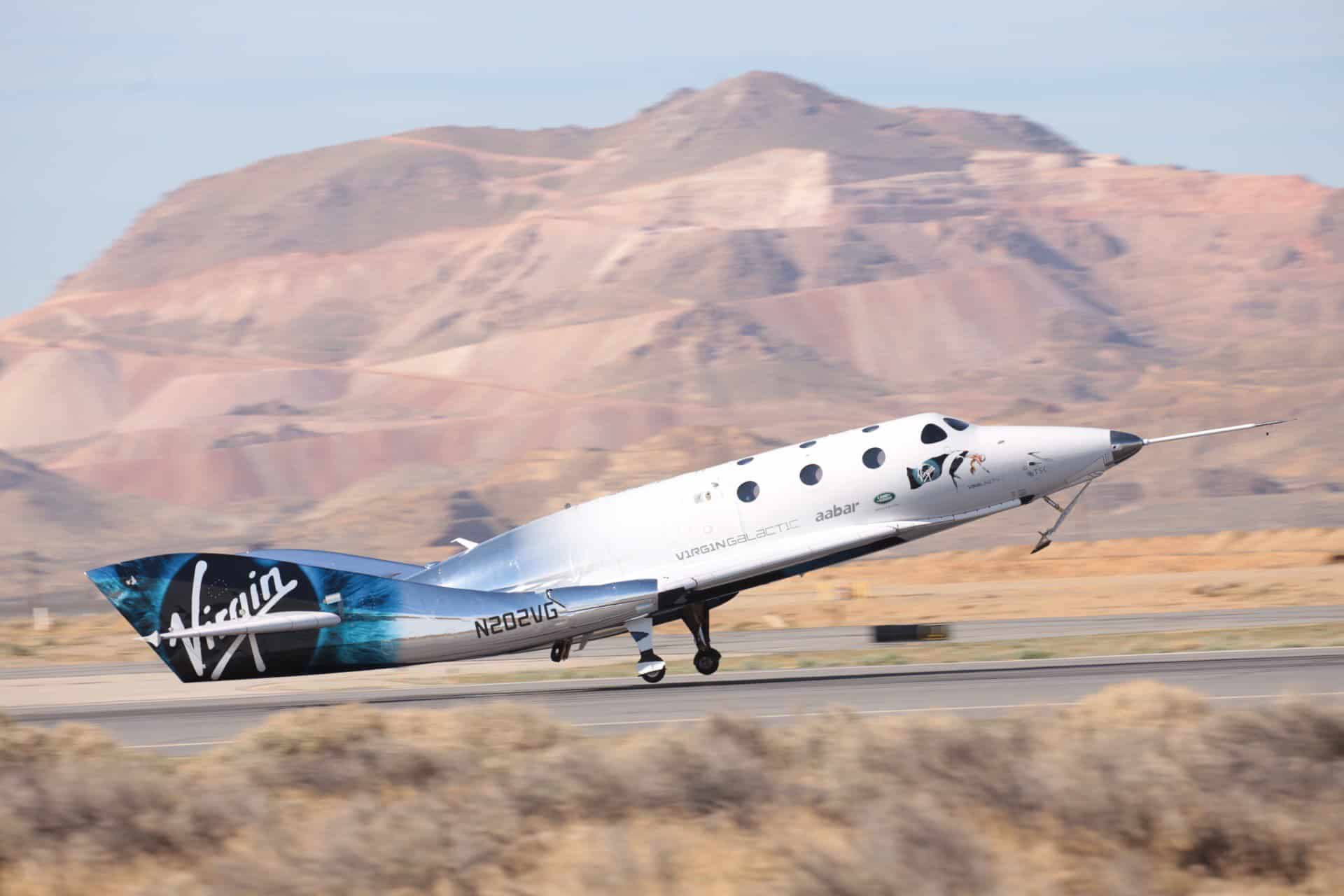Virgin Galactic announced major updates to its business this week to lengthen its runway including extensive lay offs of around 18% of its workforce and a planned pause for its spaceflights in 2024. The moves aim to cut costs and accelerate the development of the company’s next-generation spaceship.
On November 7th, Virgin Galactic’s CEO Michael Colglazier informed employees in an email that approximately 185 of them were being laid off. The layoffs come as Virgin Galactic looks to “streamline” its work outside of the Delta program.
The Delta program centers on building Virgin Galactic’s new Delta-class spaceships. The company is prioritizing its efforts on bringing the Delta fleet into service for commercial flights projected to begin in 2026.
Moreover, on November 8th, the firm published its financial results covering the third quarter of 2023 along with other important business updates.
In this communication, Virgin Galactic revealed that it will reduce the flight rate of its existing VSS Unity spacecraft from monthly frequencies to quarterly in 2023. Spaceflights will then be paused entirely in mid-2024 to focus the company’s resources on finishing the assembly of its upcoming Delta ships.
Virgin Aims to Preserve Capital Amid Prevailing Market Uncertainty
Colglazier’s email cited recent capital market uncertainty as a key factor behind the downsizing. The turbulence triggered by high interest rates and geopolitical tensions has made near-term access to capital more challenging, especially for a company with weak finances and an unproven business model like Virgin.
By cutting staff and expenses outside the critical Delta development program, Virgin Galactic aims to extend its financial runway. The company reported a cash position of $1.1 billion as of September 30th, 2023.
Virgin Galactic anticipates having adequate capital to bring the first two Delta spaceships into service by 2026. The company is forecasting that it will generate positive free cash flows that same year upon implementing these cost-saving measures.
The Delta spaceships are expected to be a game changer for Virgin Galactic’s economics, according to Colglazier. The new vessels will increase capacity, fuel revenue growth, and generate profits compared to the company’s current sole operating spacecraft, the VSS Unity.
VSS Unity Flew Six Missions in the Past 6 Months
Since debuting its commercial service in June 2023, Virgin Galactic has been flying the VSS Unity spacecraft on a monthly frequency. That rate has proven to be unsustainable as market conditions continue to deteriorate.
After its July mission, the VSS Unity underwent a planned maintenance period in preparation for its next flight. It returned to space again in late September and then conducted another flight in early November. In total, six flights have been completed by the VSS Unity in the past six months, providing some validation to the company’s business model.
But, considering today’s tighter conditions to obtain financing, Virgin Galactic is now focused solely on finishing the development of the Delta fleet. Hence the decision to pause VSS Unity flights for a lengthy stretch in 2024.
The company completed its merger with the special purpose acquisition company Social Capital Hedosophia in 2019 when it began trading publicly under the ticker SPCE.
Shares of Virgin Galactic dropped 10% yesterday as markets reacted negatively to the layoffs. However, the stock price is climbing by more than 10% this morning in pre-market stock trading action as market participants appear to be welcoming the decision to preserve capital and pause the VSS Unity’s flights for now.
Virgin Executes a Much-Needed Restructuring to Extend its Runway to 2026
These latest decisions represent a strategic realignment for Virgin Galactic to weather today’s challenging market conditions. With the company’s ability to access additional financing being crippled by these macroeconomic headwinds, Virgin appears to be laser-focused on containing costs and steering all investments toward the Delta program.
These crucial technological developments remain on track to deliver the expected results. By streamlining other non-essential operations, the firm aims to extend its existing cash runway until it can become a sustainable enterprise.
For the upcoming fourth quarter of the 2023 fiscal year, Virgin expects to burn between $125 and $135 million in cash. Meanwhile, customer deposits by the end of September stood at nearly $98 million. The company stresses that its commitment to customers remains unchanged, with Unity’s upcoming missions being expected to fly as scheduled.
Comparatively, Virgin’s net operating cash flows stood at $352.9 million during this fourth quarter. Combined with some minor capital expenditures, the company burned almost $400 million of its cash reserves in just three months.
Implementing these measures seems crucial to the survival of the firm for the remaining two to three years until the Delta program can successfully increase the number of flights, frequency, and passengers that Virgin can serve.
By keeping its balance sheet healthy, Virgin Galactic hopes to avoid more painful measures like further layoffs or major program delays. The company retains confidence that its prudent strategy will pay dividends when its next-generation spaceships transform its commercial potential.
